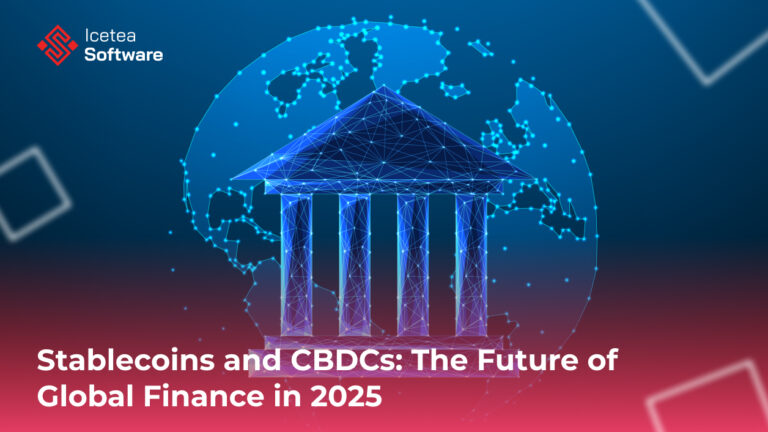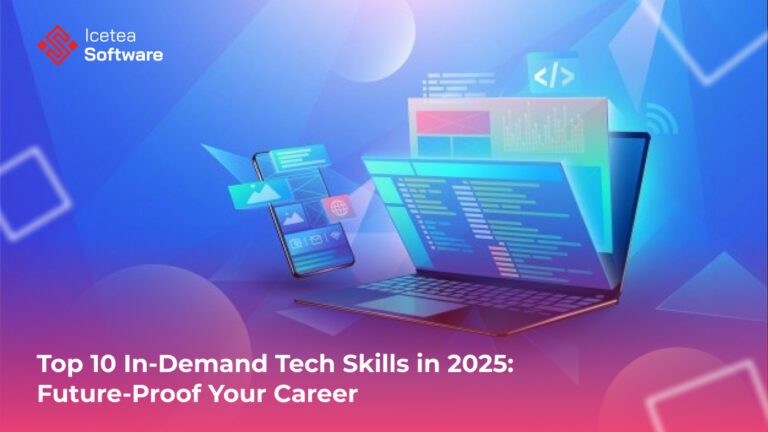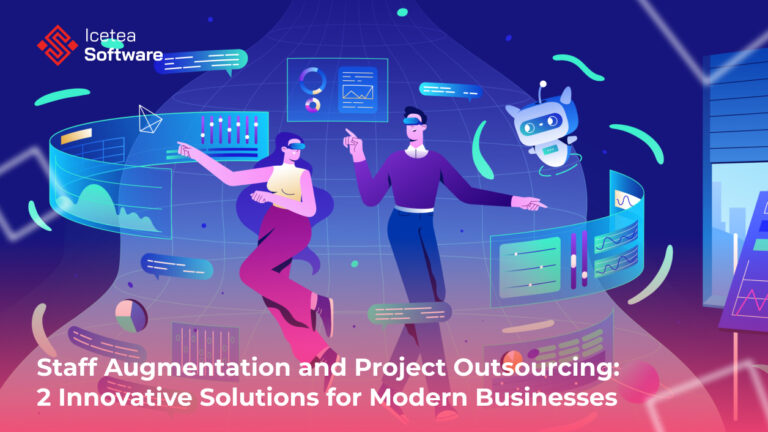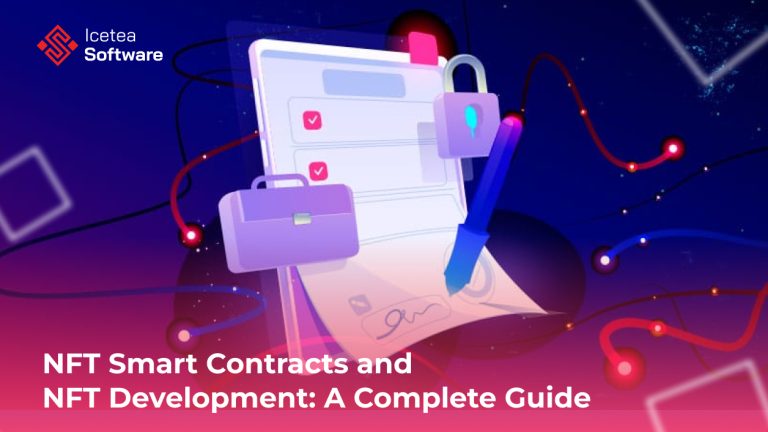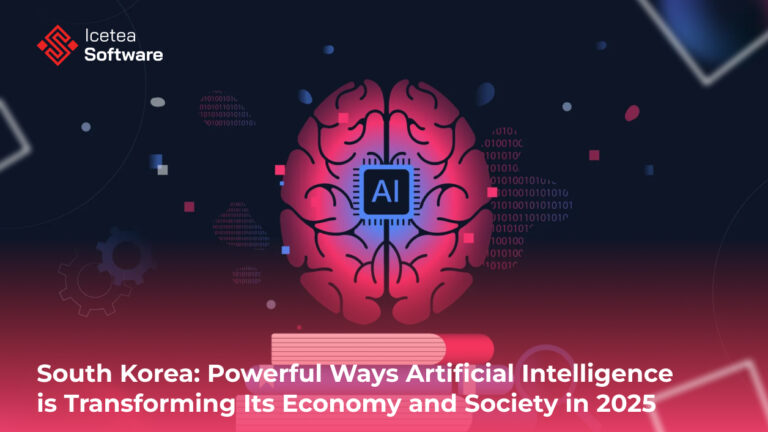Revolutionary Tech Hiring Trends in 2025: AI, Automation & Candidate Exprience Leading the Way
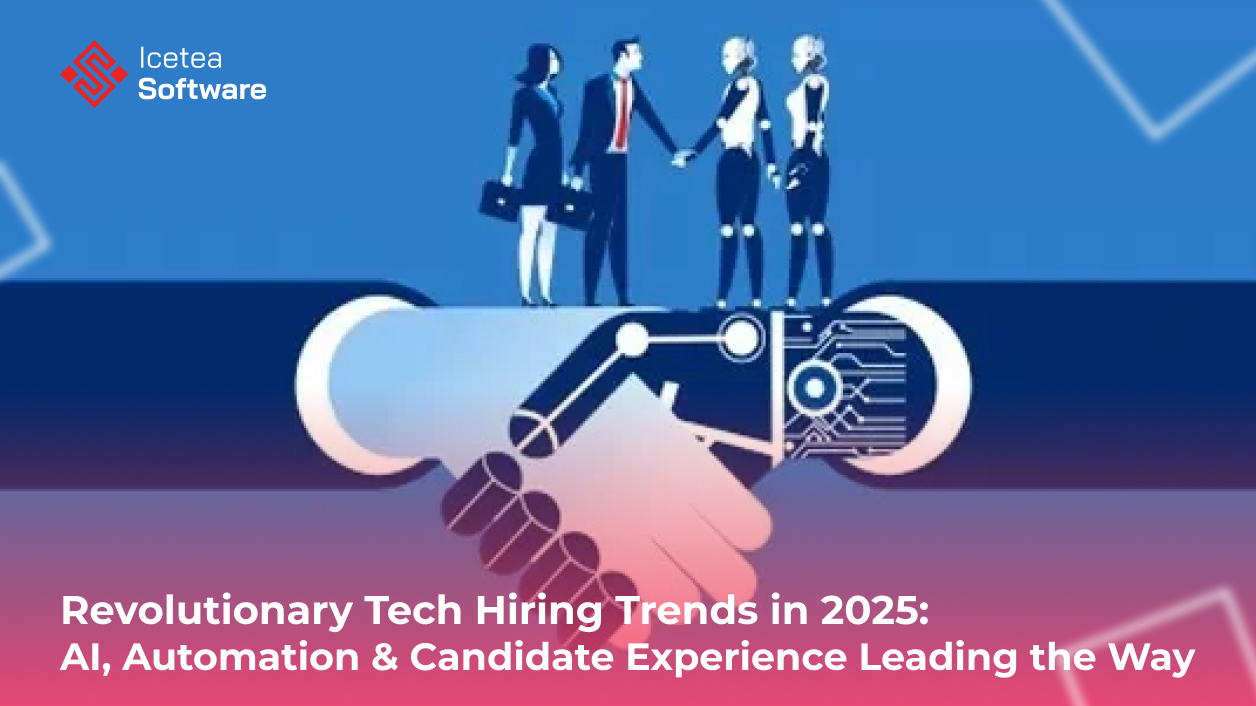
- Introduction
- Key Tech Hiring Trends for 2025
- 1. AI and Automation are Transforming the Hiring Process
- 2. Ongoing Challenge of Increasing Time-to-Hire
- 3. Candidate Experience Becomes a Key Competitive Advantage
- 4. Ongoing Talent Shortage in AI, Data Science, and Cybersecurity
- 5. Increasing Workload for Recruiters
- 6. Hybrid Work Models Impact Recruitment Strategies
- 7. Shift Toward Skills-Based Hiring Over Degrees
- Conclusion
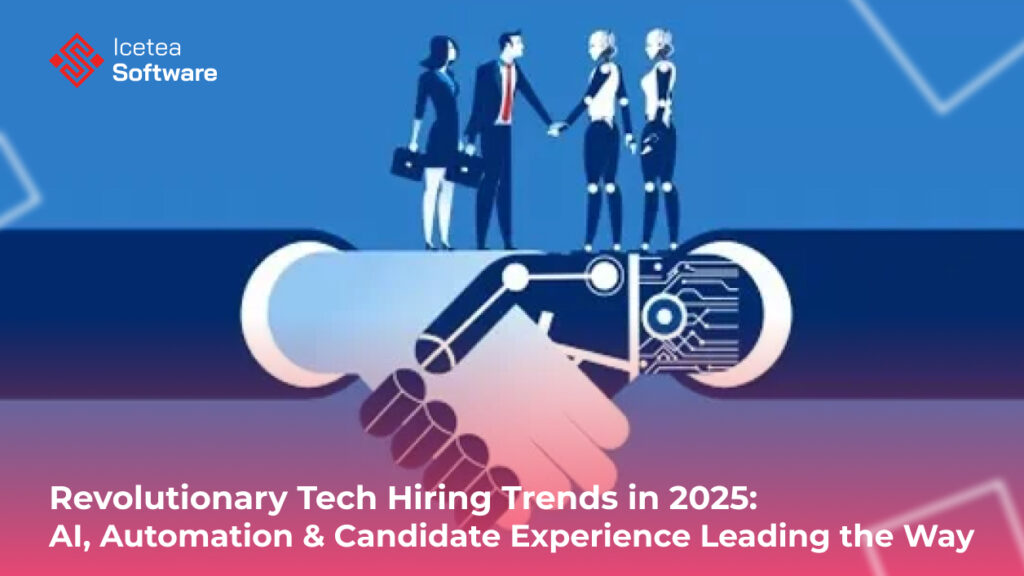
Introduction
The technology hiring landscape has changed significantly over the past few years, and 2025 will be a pivotal year for talent acquisition in the tech sector. As competition intensifies, reliance on AI and automation increases, and candidate expectations shift, recruiters must adapt to stay competitive. In this blog, we will explore the key tech hiring trends for 2025, analyze data-driven insights, and present actionable strategies for companies aiming to attract and retain top tech talent.
Key Tech Hiring Trends for 2025
1. AI and Automation are Transforming the Hiring Process
AI-powered recruitment tools are no longer a concept of the future; they have become an essential part of modern hiring. From AI-driven resume screening to automated recruitment processes, these tools are reducing the workload for recruiters and increasing overall efficiency.
- 48% of tech companies have adopted AI-powered analytics and reporting tools.
- 37% of companies use AI for interview scheduling.
- Companies investing in AI are experiencing shorter hiring cycles and improved candidate matching.
Additionally, AI-powered chatbots and virtual assistants are enhancing the candidate experience by providing instant responses and guiding applicants through the hiring process. Companies like Google and Amazon are already actively leveraging machine learning to predict candidate success and optimize hiring decisions.
2. Ongoing Challenge of Increasing Time-to-Hire
Despite advancements in hiring technology, 69% of tech companies reported longer time-to-hire in 2024, and this trend is expected to continue into 2025.
Key Factors Behind Hiring Delays:
- Untrained interviewers and poor communication (42%)
- Delayed decision-making by hiring managers (37%)
- Increased competition for skilled technical talent
Microsoft addressed hiring delays by introducing structured interview training and predictive analytics. By optimizing candidate matching with AI and automating repetitive recruitment tasks, companies can accelerate their hiring processes.
3. Candidate Experience Becomes a Key Competitive Advantage
The hiring experience has now become a critical factor in attracting top talent. Candidates expect transparency, prompt communication, and a seamless application process, all of which will play a key role in tech recruitment in 2025.
Top Candidate Expectations in 2025:
- Transparency around job roles, expectations, and hiring timelines
- Fast interview scheduling with self-service options (48%)
- Mobile-friendly application process
- Personalized communication throughout the hiring journey
According to LinkedIn research, companies that provide a seamless hiring experience achieve a 67% higher offer acceptance rate. Strengthening employer branding will become a key strategy for improving hiring success in tech recruitment.
4. Ongoing Talent Shortage in AI, Data Science, and Cybersecurity
Securing tech talent will remain one of the biggest challenges in 2025, with 45% of hiring leaders reporting increased difficulty in talent acquisition.
Most In-Demand Tech Skills:
- AI and Machine Learning Engineering
- Cybersecurity Specialists
- Data Science and Analytics
- Cloud Computing Experts
To address the tech talent shortage, companies are expanding international hiring, offering remote work options, and investing in internal reskilling programs. Google’s “Career Certificates” program is one successful example of building an internal talent pipeline.
5. Increasing Workload for Recruiters
Recruiters are under immense pressure to manage the growing volume of applicants, maintain continuous communication with candidates, and shorten time-to-hire. In 2025:
- 47% of recruiters cite turnover within the recruitment team as a major challenge.
- More than 50% of recruiters report spending excessive time on repetitive manual tasks.
- Companies that invested in automation tools saw a 30% increase in recruiter productivity.
Tesla has optimized its recruitment process and reduced recruiters’ workload by implementing AI-based resume screening and automated interview scheduling systems.
6. Hybrid Work Models Impact Recruitment Strategies
While remote work remains popular, hybrid work models are becoming the standard in tech recruitment.
Key Trends:
- 28% of companies report challenges in hiring talent within hybrid environments.
- Companies are focusing on building hybrid-friendly workplace cultures.
- Investment in collaboration and communication tools to attract remote and hybrid workers.
Organizations that clearly define expectations for hybrid work, leverage collaboration technologies, and support work-life balance will have a competitive advantage in attracting top talent.
7. Shift Toward Skills-Based Hiring Over Degrees
By 2025, skills-based hiring will accelerate, moving away from traditional degree-centric recruitment. Major companies like IBM, Google, and Apple have already eliminated degree requirements for most tech roles, focusing instead on technical skills, certifications, and hands-on experience.
Advantages of Skills-Based Hiring:
- Expands the talent pool to include self-taught developers and bootcamp graduates.
- Enables faster hiring by focusing on actual capabilities.
- Removes educational barriers and promotes diversity.
Companies should leverage technical assessments and project-based interviews to evaluate candidates based on their real-world problem-solving abilities.
Actionable Strategies for Successful Tech Hiring in 2025
Use AI to Eliminate Hiring Bottlenecks
- Efficiently screen top candidates with AI-driven resume review.
- Reduce unnecessary coordination time through automated interview scheduling.
- Provide real-time candidate support using AI chatbots.
Prioritize Candidate Experience
- Offer a mobile-friendly application process.
- Maintain clear and consistent communication throughout the hiring journey.
- Keep candidates engaged with personalized outreach strategies.
Build a Diverse and Expanded Talent Pool
- Expand beyond traditional markets to hire global talent.
- Implement reskilling and upskilling programs to develop internal talent.
- Strengthen diversity and inclusion initiatives.
Optimize Hiring Technology
- Leverage predictive analytics to accurately forecast hiring needs.
- Introduce modern recruiting CRM tools to manage candidate relationships effectively.
- Use cloud-based recruitment platforms to enhance collaboration.
Measure and Improve Hiring Outcomes
- Track key metrics such as time-to-hire, offer acceptance rates, and quality of hire to assess success.
- Use candidate feedback surveys to continuously improve the hiring process.
- Monitor AI-driven insights to fine-tune recruitment strategies.
Conclusion
The tech hiring landscape in 2025 will be driven by AI, automation, enhanced candidate experiences, and skills-based hiring. Companies that embrace technology-driven recruitment strategies, prioritize efficiency, and create personalized hiring journeys will have a significant advantage in attracting and retaining top tech talent.
By leveraging these trends, organizations can navigate the highly competitive hiring market effectively and build high-performing teams for the future.
What’s the next step in your tech hiring strategy? Stay ahead by adopting AI-powered tools, refining your recruitment process, and putting candidate engagement first.
Ready to optimize your tech hiring process? Discover the latest recruitment solutions built for 2025 and beyond!
————————————
𝐈𝐜𝐞𝐭𝐞𝐚 𝐒𝐨𝐟𝐭𝐰𝐚𝐫𝐞 – 𝐂𝐮𝐭𝐭𝐢𝐧𝐠 𝐄𝐝𝐠𝐞 𝐓𝐞𝐜𝐡𝐧𝐨𝐥𝐨𝐠𝐢𝐞𝐬
𝐖𝐞𝐛𝐬𝐢𝐭𝐞: iceteasoftware.com
𝐋𝐢𝐧𝐤𝐞𝐝𝐢𝐧: https://www.linkedin.com/company/iceteasoftware/
𝐅𝐚𝐜𝐞𝐛𝐨𝐨𝐤: https://www.facebook.com/IceteaSoftware/
𝐓𝐰𝐢𝐭𝐭𝐞𝐫: https://x.com/Icetea_software


